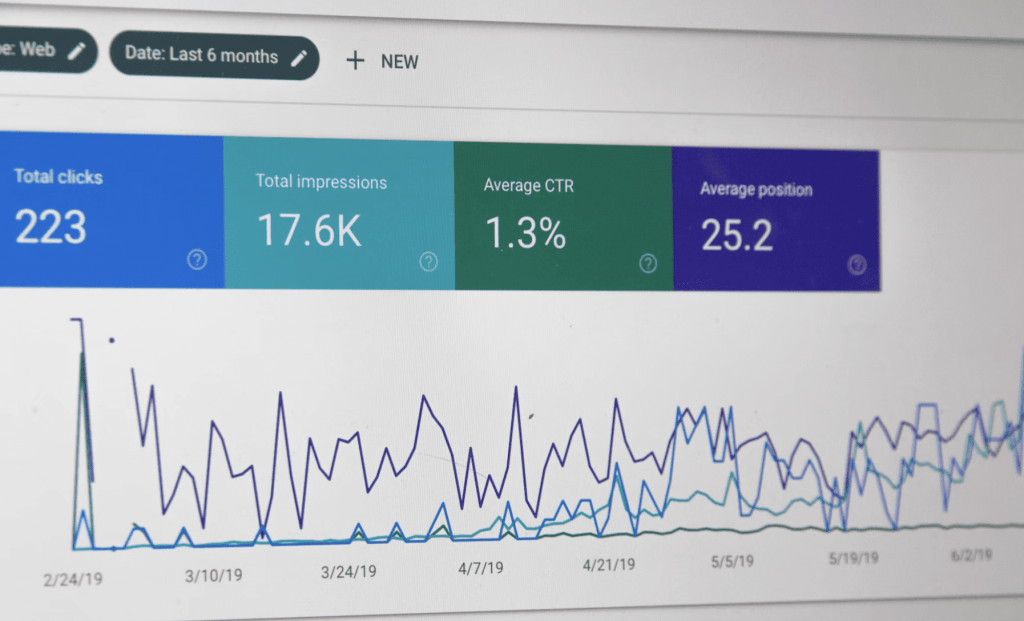For more Web Tools, check out the Freelancer Toolkit…

Tracking your keywords is an important part of any SEO strategy. It helps you figure out how well your SEO is working and which parts of your website are doing the best. However, it can be difficult to keep track of all the different variables that affect rankings. To make sure you get the most benefit, it helps to know the seven core SEO principles for successful SEO.
By following these rules, you can learn a lot about how your website is doing and change your strategy quickly if you need to.
With this knowledge, you can ensure you are always working towards achieving the best possible rankings and getting the most out of your SEO efforts.
Ready? Let’s dive in.
We have SEO experts ready to help you optimize your website.
The 7 SEO Principles For Success
Here are the most important SEO principles you should remember when tracking your keyword rankings.
1. Understand The Importance of Keyword Rank Tracking

Keyword tracking is essential to the success of any digital marketing campaign. After all, how can you measure your progress if you don’t know where you started?
But beyond providing a baseline for measuring success, tracking your keywords can also help you to identify opportunities and target new keywords. For example, if you see that your website is ranking well for a particular keyword, you may want to consider creating content around that keyword to further improve your ranking.
Similarly, if you see that your website is struggling to rank for a certain keyword, you can use that information to inform your content strategy and focus on other ones that may be more successful.
By tracking click-through rates (CTR), bounce rates, page views per session, and other data points associated with specific keywords, you can gain an understanding of how people interact with your content across different devices and platforms such as desktop or mobile devices, and boost your rankings.
2. Identify Target Keywords to Monitor
If you’re serious about driving traffic and conversions, you need to be strategic about the keywords you choose to target. Here are a few tips for how to identify and prioritize the right ones for your website:
- Start with your buyer persona in mind. What are the keywords that they would use to find your products or services?
- Use keyword research tools to find related keywords and phrases that are being searched for.
- Look at the competition. Which ones are they targeting? Prioritize the ones that are most relevant to your business.
- Monitor your website’s search engine ranking for the target keywords over time to see how you’re progressing.
- Adjust your keyword strategy as needed based on results.
By following these tips, you can ensure that you’re targeting the right keywords to drive traffic and conversions to your website.
3. Analyze Search Engine Results Pages

The world of SEO principles can be a confusing one, acronyms abound, and it’s hard to keep track of all the different moving parts. But if there’s one thing essential for any website, it understands how your site appears in search engine results pages (SERPs).
Analyzing SERPs can be helpful in several ways. For one, it can give you a sense of the competition for your chosen keywords. If you see that several high-powered sites are ranking ahead of you, it may be time to rethink your strategy.
Additionally, studying SERPs can also give you insights into which ones are performing well for you and which ones could use a boost.
Finally, analyzing SERPs can help you identify potential opportunities for your website. Perhaps there’s a keyword you’re not currently targeting but could be ranking for with a little effort. Or maybe there’s a gap in the SERPs that your site could fill.
Don’t be afraid to roll up your sleeves and take a close look at the SERPs. It just might be the key to unlocking your website’s full potential via SEO principles.
4. Optimize Your Content For Higher Rankings

If you’re hoping to earn higher rankings in search engines, you’ll need to optimize your content. This means crafting your text, titles, and meta descriptions with care, using the right keywords and phrases to help your content stand out.
It can be a bit of a balancing act – you don’t want to stuff your content full of keywords, but you also don’t want to neglect them entirely. But if you take the time to get it right, the rewards can be great. Not only will you gain higher rankings, but you’ll also attract more organic traffic to your site.
When it comes to optimizing your content, the basics are the key to better ranking:
- Use keyword-rich titles: Your title is one of the first things that a search engine will look at, so make sure it’s packed with relevant keywords.
- Use headings and subheadings to break up the text and make it easier for readers to digest.
- Optimize your images: Whenever you use images in your content, make sure to include relevant keywords in the file names and alt text.
- Link to relevant sources wherever possible, as this can help establish authority in your niche.
- Make sure your content is well-written and informative. If it is, then people will want to read it, and they will also be more likely to share it with others.
- Check for spelling and grammar errors as these can hurt your rankings, use a tool like Grammarly to ensure your content is free from errors.
- Finally, keep your content updated regularly using a content schedule.
If you’re looking for a tool to help you optimize your SEO as you write, Surfer SEO might be the tool for you. This software is intended to assist you in easily ranking higher in Google search results.
5. Use An Effective Keyword Rank Tracking Tool

There are a lot of different rank-tracking tools out there, and it can be tough to know which one to use. But don’t worry – we’re here to help, here are five of the best:
1. Google Search Console – This is a free tool from Google that lets you track your keyword rankings and see how your website is performing in search.
2. SEO Power Suite – This is an all-in-one suite of SEO tools that can help you track keyword rankings, analyze backlinks, and much more, and has an excellent free plan.
3. Rank Tracker – This is a paid tool that offers a more comprehensive approach to keyword tracking. It lets you track an unlimited number of keywords, and you can also get detailed reports on your website’s search performance.
4. SERPWatcher – This is another paid keyword tracking tool that offers similar features to Rank Tracker. It’s a great choice if you need more advanced features like competitor analysis and rank-tracking history.
5. Moz Pro – This is a complete SEO platform that includes tracking as one of its many features. It’s a great choice if you’re looking for an all-in-one solution for your SEO needs, although it’s quite expensive.
These rank tracker tools can save you hours of work, and help to automate your SEO, so it’s definitely worth giving them a try. With a few clicks of your mouse, you’ll be able to gain valuable insight into your website’s performance and start optimizing for higher rankings.
6. Create a Ranking Strategy

As any digital marketing expert knows, website ranking is everything. It’s the make-or-break of whether people will find your content and, as a result, whether you’ll make any money. So it’s important to have a ranking strategy in place to track how your website is performing over time.
This way, you can adjust your tactics as needed to maintain or improve your ranking. Several SEO principles go into website ranking, including keywords, backlinks, and page load speed.
- By tracking your keyword performance, you can get an idea of which keywords are working well and which ones need more work. You can then adjust your content accordingly to improve your ranking.
- Backlinks are also important, so be sure to track where they’re coming from and whether they’re helping or hurting your ranking.
- Page load speed is also crucial for both users and search engines, so make sure your website is loading quickly.
- Keeping an eye on competitor strategies is a great way to stay one step ahead when it comes to SEO performance against the competition. Analyzing the metadata they use, their keyword targeting strategies, and even their link-building tactics can help you compete.
- Finally, staying abreast of the latest trends in SEO is integral for maintaining optimum keyword rankings over time.
7. Monitor Your Keyword Rankings & Analyze The Results

You’ve done the hard work of researching your target keywords and optimizing your content to rank for them; now it’s time to track your rankings and analyze the results.
Monitoring keyword rankings is an important part of a successful SEO strategy, as keeping an eye on your progress can help you determine what changes to make if needed.
There are several ways to monitor keyword ranking on search engine result pages (SERPs). One way is to use one of the many keyword-tracking tools available as I mentioned before.
These tools will pull data from various search engines and show you how well your pages rank for each keyword in their reports. This allows you to quickly see whether any adjustments need to be made for you to move up in the SERPs.
It’s also important to analyze the results of your tracking efforts. By looking at which keywords are performing better than others, you can identify opportunities for improvement or areas that may need more focus.
You can also look for trends in user behavior by analyzing where visitors are coming from and how they interact with different pages on your website. This information can provide valuable insight into how best to optimize content and improve overall organic performance.
By monitoring keyword rankings and analyzing the results, you’ll have a better understanding of what’s working – or not – with your SEO strategy and be able to take action when needed.
Doing so will ensure that you get the most out of all the hard work put in upfront, giving you a leg up over competitors who haven’t kept up with their own optimization efforts!
Wrapping Up
As you can see, there are a variety of tactics and strategies that can be employed to successfully optimize your website for targeted keywords. From creating an effective plan to tracking performance data and monitoring your target keywords, it’s important to stay on top of all aspects of SEO to maximize the effectiveness of your content.
By following these seven SEO principles, it’s possible to see dramatic improvements in your organic search engine rankings and drive more targeted traffic to your website.
Ready to hire? Our marketplace of over 410,000 diverse freelancers has the skills and expertise needed to skyrocket your business. From marketers to designers, copywriters to SEO experts – browse the talented bunch here!



